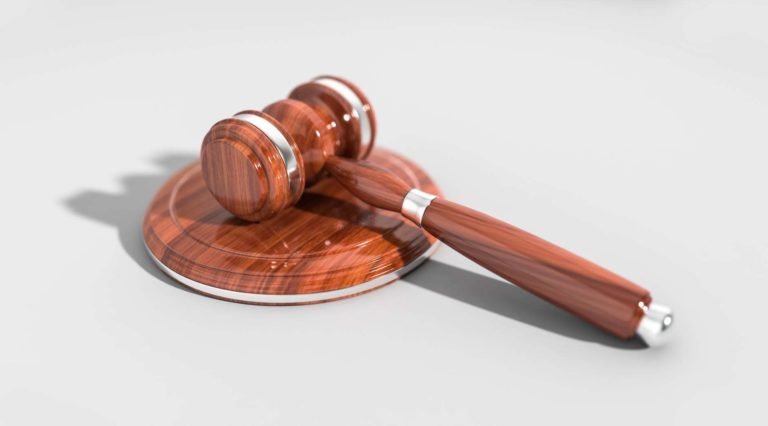El presente artículo está dirigido para todas aquellas Corporaciones Mercantiles, ya sean Sociedades o empresas individuales, que son o han sido víctimas de delitos que afecten su patrimonio, tales como ESTAFAS, FRAUDES, FALSEDADES MATERIALES E IDEOLÓGICAS, LAVADO DE DINERO Y OTROS ACTIVOS, HURTOS, entre otros.
Según Theodore S. Greenberg. Linda M. Samuel Windgate Grant, Larissa Gray, en su obra “Recuperación de activos Robados” Guía de buenas prácticas para el decomiso de activos sin condena, se estima que:
“El flujo a través de las fronteras de los productos globales por actividades criminales, corrupción y evasión de impuestos se estima entre US$1 billón y US$1,6 billones por año.
Asimismo, la cantidad de dinero robado a los países en desarrollo y en transición está entre US$20.000 millones y US$40.000 millones, cifra equivalente a entre el 20 y el 40% de los flujos de ayuda oficial para el desarrollo. El daño resultante de tal defraudación incluye la degradación y la desconfianza de las instituciones públicas, el debilitamiento del clima de inversiones privadas y la corrupción de los mecanismos de prestación de servicios sociales para los programas de salud y educación básicas.”
Tabla de contenido
La criminalidad en las empresas.
Además de la criminalidad a nivel internacional, también acontecen con frecuencia hechos delictivos cometidos entre entidades mercantiles (Sociedades o empresas individuales), ya sean legalmente constituidas en el país o empresas “fantasma” o de “fachada”, con el objeto de cometer fraudes patrimoniales considerables en el ámbito privado.
La Globalización y la facilidad de iniciar negocios en ésta época de la Humanidad, también ha facilitado la comisión de hechos delictivos como estafas, contrabando, evasión fiscal, falsedades ideológicas y materiales, fraudes, lavado de dinero entre otros delitos, cometidos por personas inescrupulosas escondidas bajo el manto de Empresas particulares, Sociedades Anónimas, Organizaciones y/o Asociaciones No Gubernamentales que pueden estar funcionando con normalidad o inclusive empresas fantasma, dedicadas únicamente a cometer delitos y estafar particulares y hasta Corporaciones con un giro Económico considerable.
Prevención de Delitos.
Derivado del contexto anterior, es importante contar con asesoría Legal permanente, es decir preventiva, para investigar, revisar y aprobar cualquier negocio jurídico que se estime lícito, previo a cualquier acto que pueda comprometer a la empresa y/o persona individual que vaya a participar en un acto jurídico, suscribir contratos, adquirir acciones de otras empresas, aportar bienes a sociedades y cualquier otra gestión que comprometa el patrimonio empresarial o individual.
El acompañamiento jurídico-legal en toda negociación es indispensable para prevenir problemas jurídicos ulteriores. Sin embargo, muchas veces las personas individuales, empresas particulares e inclusive grandes Corporaciones mercantiles realizan actos jurídicos sin consultar a su Firma de Abogados de confianza y esto facilita ser víctima en la comisión de delitos. Para lo cual es importante contar con expertos en materia penal que acompañen a las empresas víctimas de delitos que hayan afectado su patrimonio. Así como el planteamiento de una Defensa en caso de estar siendo acusado de la comisión de un delito, por hechos que sean civiles y no de naturaleza penal, para poder presentar una Defensa Técnica adecuada.
La importancia de las acciones penales para recuperar activos robados y objeto de estafas fraudes y delitos que afecten el patrimonio.
Cuando una Corporación ha sido víctima de una AFECTACIÓN PATRIMONIAL, mediante la comisión de delitos en contra de ella, el primer paso a dar es acercarse con el Abogado o Corporación de Abogados de confianza y cerciorarse de contratar especialistas en materia Penal, para iniciar las gestiones jurídico-penales pertinentes, como lo es la presentación de una QUERELLA PENAL y solicitar investigación ante el Ministerio Público o darle continuidad a gestiones realizadas por colegas que no hayan dado resultados efectivos.
Las gestiones legales en materia penal como lo es una QUERELLA PENAL tienden a tener un efecto positivo, para poder llegar a acuerdos viables sin la necesidad de sustanciar todo el proceso penal, a través de las medidas DESJUDICIALIZADORAS, las cuales tienden a resolver el conflicto planteado sin que sea necesario sustanciar todo el proceso penal y con ello llegar a acuerdos para garantizar la reparación digna a cambio de poner fin al conflicto y con ello recuperar activos de forma efectiva, tal y como lo permite el proceso penal guatemalteco.
La importancia de accionar penalmente, causa un efecto en la contraparte, que, en la mayoría de veces, prefiere solventar la situación legal en una vía conciliatoria y con ello plantear una estrategia Legal eficiente que tienda a recuperar bienes de toda naturaleza, con mayor eficacia y efectividad, siempre y cuando se lleven las estrategias Penales que los Abogados expertos en la materia sugieran.
Las ventajas de la solución de conflictos por la vía conciliatoria.
Como indica el trillado aforismo que los Abogados litigantes recitamos: “Vale más un mal arreglo que un buen juicio”. Sin duda alguna, la mejor manera de a resolver en un conflicto es por la vía conciliatoria y/o de forma extrajudicial por los siguientes motivos:
- Se evitan largos, tediosos y costosos procesos.
- La contraparte puede evitarse posibles medidas coercitivas como ordenes de aprehensión, estar ligado a proceso y tener medidas sustitutivas como arraigo, arresto domiciliar, embargos de cuentas o inmovilización de bienes inmuebles.
- Se pueden evitar futuros actos procesales que llevan a cabo en el Ministerio Público como allanamientos, inspección, registro y comiso de bienes.
- Figurar como Sindicado en el Sistema informático del Ministerio Público. (SICOMP), documento que a veces es solicitado por embajadas para optar a visas o residencias.
- Los bienes objeto de litigio se recuperan de forma más rápida y eficiente, toda vez que al verse la posibilidad de recuperar activos, se inician las negociaciones para devolver el o los bienes objeto de QUERELLA y se termina el proceso penal, llegando a acuerdos ya firmes entre las partes y con esto evitar la pérdida de los bienes objeto de litigio, que es una posibilidad inminente si se sustancia todo el proceso, pues si al finalizar el mismo y la persona o corporación sindicada se encuentra en bancarrota en ese momento, la probabilidad de recuperar un activo es nula, por no haber suficientes bienes.
- Las medidas desjudicializadoras permiten que el sindicado no enfrente todo el proceso penal y esto sea un aliciente a negociar extrajudicialmente.
- Se evitan manchar antecedentes penales.
- Al no llegar a un acuerdo existen medios legales para obligar al o los sindicados a comparecer a las audiencias judiciales y si no lo hiciere se puede recurrir a medidas coercitivas, como la solicitud de orden de aprehensión, para garantizar su presencia en el proceso penal.
- Si no es el deseo negociar, el Ministerio Público continúa la investigación y el proceso sigue su curso normal, lo cual nunca conveniente para cualquier sindicado, si el acompañamiento de los abogados con la víctima ha sido eficaz y se han podido probar los delitos, por lo que una investigación con medios de prueba suficientes, también pueden tender a que los Abogados de la contraparte, sugieran al sindicado, devolver los activos objeto de comisiones de delitos.
Conclusión.
Como se explicó, es evidente la importancia de tener estrategias legales eficaces, para poder dar seguimiento a estos procesos, que tiendan en todo momento a recuperar activos de la forma más efectiva y terminar los procesos lo más pronto posible porque el objeto de los mismos es dirigido a recuperar a la brevedad por medio de acuerdos y no sustanciar todo un proceso.












